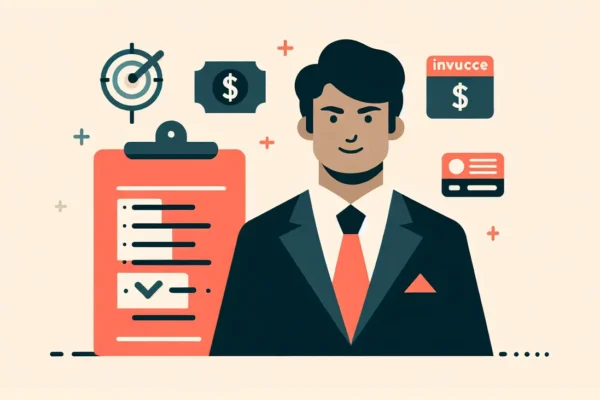Introduction to Fintech: Revolutionising Financial Management
Financial technology, is a game-changer in how companies manage their finances. It’s about using smart technology to make financial operations easier, faster, and more efficient.
From mobile banking to automated investing, fintech gives businesses the tools they need to streamline processes and slash costs. Imagine doing all your banking without ever visiting a bank, or having algorithms make investment choices for you. That’s fintech in action. It’s not just for the tech-savvy.
Simple interfaces and user-friendly apps mean anyone can harness the power of fintech.
Whether you’re a startup on a shoestring budget or a well-established company looking to innovate, fintech offers solutions to improve your financial management and help your business recover and grow. It’s transforming the financial landscape, making it easier for companies to keep up with the demands of the modern world.
With fintech, your company can not only survive but thrive.
The Role of Fintech in Business Recovery
In today’s fast-moving world, fintech, short for financial technology, plays a crucial role in helping businesses bounce back from tough times. Fintech makes it possible for companies to manage their finances more efficiently and access funding quicker than traditional methods. Think about online lending platforms—they can provide loans to businesses in a matter of days, not weeks or months. This speed can be a game-changer for a business trying to recover.
Moreover, fintech offers innovative tools for managing cash flow, forecasting, and budgeting. These tools give businesses a clear view of their financial health and can help predict future revenue or losses. This means decisions are based on data, not just gut feelings.
Payment solutions, another fintech service, make transactions smoother and faster, improving cash flow—a critical factor in recovery. With efficient payment methods, companies can receive payments from customers quickly, improving their liquidity.
In addition, fintech can also open up new revenue streams. For instance, e-commerce platforms can help businesses reach a global market without the traditional overhead costs. By leveraging fintech, companies are not just recovering; they’re also finding new opportunities for growth.
In simple terms, fintech offers the tools and services that can help a struggling business get back on its feet. It’s about making the most of technology to solve financial challenges quickly and smartly.
Key Fintech Tools for Financial Health
In today’s world, your business needs every advantage it can get, and fintech tools offer that edge when it comes to financial health. Picture fintech as your financial Swiss Army knife.
Accounting software streamlines your financial records and processes, making sure you’re on top of taxes and expenses without a mountain of paperwork.
Payment solutions then come into play by enabling you to receive payments from anywhere in the world, not just at a counter or through a bank. They broaden your customer base and cash flow options.
Borrowing/Lending options enable access funds (in some cases) within minutes! These are a strong weapon in the armoury for any business.
Budgeting tools are like financial planners in your pocket. They keep an eye on your spending, helping you avoid unnecessary expenses and focus funds where they count most.
Lastly, financial analysis platforms give you insights into your business performance. They’re like having a financial advisor on call 24⁄7, offering you reports and forecasts to guide your next big decision.
By integrating these fintech tools into your business, you’re not just surviving; you’re setting the stage for thriving.
How AI and Machine Learning in Fintech Can Predict Financial Risks
AI and machine learning in Fintech are like smart assistants that help businesses stay ahead of financial risks. These technologies dig deep into data to spot patterns that humans might miss. For example, they can predict if a market will crash or if a customer might not pay back a loan.
This is crucial because it gives companies a heads-up to either brace themselves or change strategies. Think of it as having a crystal ball that helps in making smarter, data-backed decisions. With AI, companies can also automate risk assessment processes, making them faster and more efficient. So, businesses can take action quickly, avoiding potential money problems before they grow too big. This means they don’t just react to problems; they prevent them.
In a nutshell, AI and machine learning are changing the game by letting companies spot financial risks early and respond fast, keeping them one step ahead in the game.
Streamlining Operations: The Efficiency of Fintech Solutions
Fintech can transform how your business runs, making it leaner and more efficient. Imagine shaving hours off tasks that used to eat up your workday. That’s what fintech solutions bring to the table – they automate the mundane, letting you focus on growth.
A simple example is invoice automation. No more manual entries or errors; fintech software does it in a snap, improving accuracy and saving valuable time. Payment processing becomes lightning fast, too. Say goodbye to the old days of waiting for checks to clear. With fintech, payments can be received instantly through digital channels, improving cash flow immediately.
Then there are budgeting tools designed for clarity and control, helping you make informed decisions quicker. These tools analyze your data in real-time, offering insights that used to take days to compile. In essence, fintech doesn’t just save you time and money. It equips you with a high-powered engine in your business, streamlining operations and setting you on a path for faster recovery and growth.
So, embracing fintech isn’t just about keeping up; it’s about setting the pace in your industry.
Access to Capital: Crowdfunding and Alternative Financing
In today’s economy, getting your hands on capital from a traditional lender can feel like trying to squeeze water from a stone. Bank loans, with their lengthy processes and stringent requirements, often leave small businesses out in the cold.
This is where fintech shines, offering a lifeline through crowdfunding and alternative financing options.
Crowdfunding is like passing around a collection plate for your business, where anyone can chip in. Platforms like Kickstarter and Indiegogo have become digital arenas where dreams turn into funded projects. This is not just about donations; some models offer equity or rewards, getting early investors or customers excited about what you’re building.
Alternative financing, on the other hand, throws the old rulebook out the window. Think of merchant cash advances, peer-to-peer loans, or revenue-based financing. These options often come with fewer hoops to jump through, making them a quick fix for cash flow crises.
Fintech has democratized access to capital, making it more about your business’s potential and less about the size of your collateral. Whether you’re looking to launch a new product, expand, or just keep the lights on, exploring these modern finance routes could be the game-changer your company needs.
Improving Cash Flow with Digital Payment Solutions
Digital payment solutions are changing how businesses manage money. They make it easier to keep the cash flowing. Think of these as your financial lifeblood – the smoother it flows, the healthier your business.
Here’s the deal: when you switch to digital payments, you cut down on the time it takes to get paid, as well as giving more options to your customers. There’s no waiting for checks to clear or for payments to be mailed. Money moves fast, directly into your account.
And here’s another thing – digital payments often come with lower transaction fees than traditional methods. This means more money stays in your pocket. Plus, these systems help you keep track of payments in real-time. You see who’s paid and who hasn’t, making it simpler to manage your cash flow.
Bottom line? Going digital can keep your money moving and your business thriving.
Data Security and Compliance in Fintech
Data security in fintech is not just important—it’s essential. When your company uses fintech solutions, you’re handling sensitive financial information. This demands strong security measures.Fintech companies use advanced technologies like encryption to protect your data from hackers.
Compliance is another crucial piece of the puzzle. The fintech industry is heavily regulated. This means fintech firms must follow strict rules on how they manage and protect client data. If they don’t, they could face hefty fines or legal issues. For your business, working with a fintech partner that prioritizes data security and compliance is key. It not only protects your customers’ information but also shields your company from potential risks and legal troubles.
Always check that your fintech provider is up-to-date with the latest regulations and security technologies. It’s your best defense in the digital finance world.
Real World Success Stories: Companies Saved by Fintech
Several companies have been pulled back from the edge of failure by embracing fintech solutions. Take Square, for example, a platform that revolutionised payment processing for small businesses. Before Square, many small businesses struggled with accepting card payments due to high fees and complicated equipment. Square offered an easy-to-use, mobile-based payment system allowing businesses to accept payments anywhere, boosting sales and customer satisfaction.
Then there’s Stripe, another fintech giant, which focused on simplifying online payments for e-commerce. Before Stripe, setting up payments on a website was a complex process that required technical expertise. Stripe made it possible for even the smallest online stores to start accepting payments with minimal hassle, opening up new revenue streams for businesses worldwide.
These success stories show how the right fintech tools can not only save a business but also set it on a path to growth and prosperity.
Leveraging Fintech for Your Business Recovery: Getting Started
Fintech is not just a buzzword. It’s a powerful tool to jump-start your business recovery. Think of it as your savvy financial sidekick, armed with digital solutions that can streamline your operations, cut costs, and boost your revenue.
Getting started with any fintech might sound daunting, but it’s all about knowing where to aim first.
Firstly, evaluate your business needs. This could mean automating your invoicing system to speed up payments or using digital ledger technologies for better financial tracking. Next, dip your toes into the sea of available fintech solutions. There are apps and platforms designed for small to huge businesses, each with features like payment processing, asset management, and even crowdfunding.
Then, don’t shy away from seeking expertise. Whether it’s consulting with a fintech expert or joining online forums, getting advice can tailor your approach effectively. Finally, think of integrating fintech as a step-by-step journey, not a one-time leap. Start with one solution that addresses your immediate need and scale from there.
Fintech can significantly propel your business toward recovery, making your financial operations smoother, faster, and more efficient.







